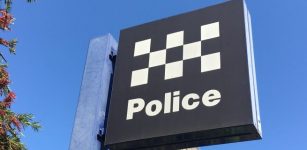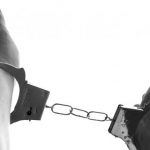Police Officer Accused of Raping Child

By Blake O’Connor and Ugur Nedim
A Queensland police officer is awaiting trial after being charged with sexually assaulting a former partner’s child and indecently assaulting another.
The 46-year old officer, whose name has been suppressed for legal reasons, is charged with one count of ‘sexual intercourse without consent’ and 11 counts of indecently assaulting a child under 12 years of age, stemming from incidents that are allegedly to have occurred between four and six years ago.
The accused’s criminal defence lawyer says the charges caused his client to reach ‘breaking point’, resulting in him taking a large number of sleeping tablets in an attempt to commit suicide. The officer was admitted to hospital where he received psychiatric treatment.
Although details of the allegations are yet to be released, it has been reported that they involve the officer “grooming” and “using his position whilst being in a relationship with the two complainants’ mothers”.
A bail hearing before Brisbane Magistrates Court has been adjourned until 12 October to allow time to assess the suitability of potential residential addresses. The prosecution has indicated it will oppose bail due to the strength of the evidence against the officer, the likelihood of a lengthy prison sentence if he is found guilty, and the concern he will “interfere with witnesses” if released into the community.
However, the officer’s lawyer has foreshadowed a challenge to expert evidence the prosecution intends to rely upon, describing it as “new technology” which is “largely untested”.
“No one knows whether another expert might come along and easily poke holes in this contested expert evidence that the crown relies heavily on”, the lawyer said.
Expert Evidence or Junk Science?
In recent years, the higher courts have become increasingly critical of the use of expert evidence to bolster a case. Courts have become particularly about sweeping claims and generalisations made by some ‘experts’ on tenuous supporting evidence, and the use of scientific terms which make the evidence appear to be stronger than it is.
In Honeysett v The Queen, the High Court of Australia found that the use of expert evidence against a defendant was particularly unfair. In that case, the defendant was charged with aggravated armed robbery on a suburban hotel. The prosecution alleged that the defendant could be seen committing the crime on the hotel’s CCTV footage, which was poor in quality. It called an expert anatomist (a person who gives opinions about features of the human body) to testify that the images on the footage were consistent with the height and features of the defendant, which was central to the prosecution case.
Among other things, the High Court found that the use of scientific terms in that case was unfairly prejudicial to the defence, as it gave the impression that the evidence was stronger than it in fact was:
“The evidence gave the unwarranted appearance of science to the prosecution case. The use of technical terms such as ectomorphic was apt to suggest the existence of more telling similarity than to observe that each was merely skinny”, the court said.
Similar findings were made in Beckett v The State of New South Wales, where a woman sued the NSW Police Force after she was falsely imprisoned for several years. The court in that case was critical of the plaintiff’s expert who attempted to draw a number of personal conclusions about the original investigating detective’s behaviour.
Although details of the expert evidence against the Queensland police officer have not been released, one would hope he receives a fair trial and that a just outcome is reached in the circumstances.
Image credit: Courier Mail






